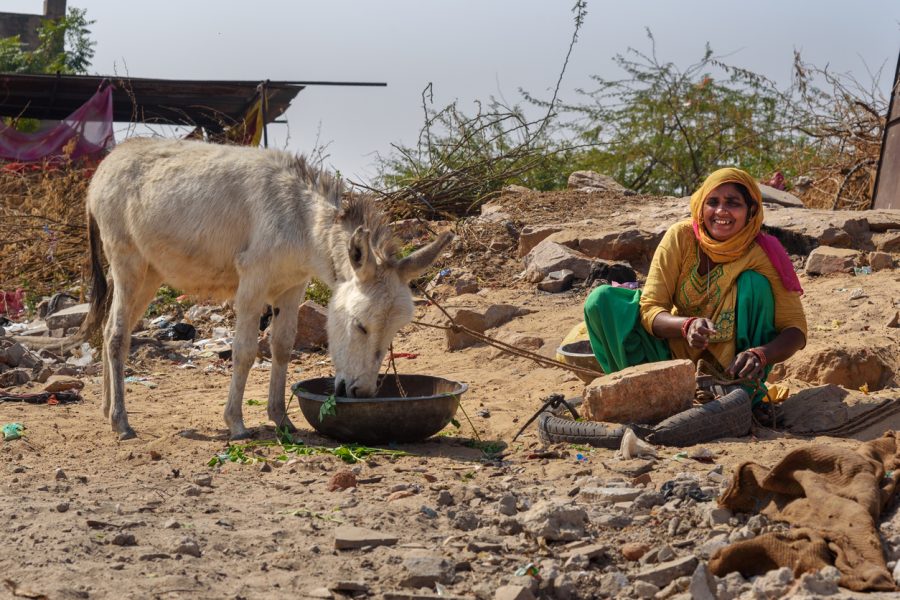
Indian textbooks are full of regressive ideas but Maharashtra shows the way
Giving dowry can help to marry off “ugly looking girls” was the latest shocker; but our textbooks are full of such derogatory comments against women

Giving dowry can help to marry off “ugly looking girls” was the latest shocker that emerged from an Indian textbook.
This advice has been penned by one TK Indrani in the Textbook of Sociology for Nurses, a book that is prescribed as a textbook in certain colleges. In the book, she justifies dowry as something that can help set up a new household, or if what’s offered is “attractive” enough, can help marry off “ugly-looking girls”.
After a page from the book went viral on social media, the Indian Nursing Council (INC) lodged an official complaint with the Delhi police against the author. In her letter to the station house officer of Okhla Industrial Area, Dr Sarvjeet Kaur, secretary, INC, complained about the “regressive and derogatory comments” , which is also promoting an illegal act.
Several antecedents
This is not the first time, however, that Indian textbooks have come under attack for carrying offensive and sexist comments. In early 2017, a similar gaffe was unearthed in a textbook in Maharashtra, which suggested that a man should ask the woman’s family to pay him more to marry her. “If a girl is ugly and handicapped then it becomes difficult for her to get married. To marry such girls, the bridegroom and his family demand more dowry,” said the book.
When reporters brought it to his notice, Vinod Tawde, the then state education minister, told them the education board was trying to reflect social reality in this chapter. “However, if the media has objections regarding the content, we will surely think about revising it,” he had said back then. And, after a backlash, asked the board to remove the content.
Some years ago, a home science book under the CBSE stream had said that women perceive jobs as a stop-gap arrangement until marriage. While a tip in a Rajasthan textbook, on how to become a good entrepreneur, suggested that you need “good height” and “a good complexion”. Forget the hard work and the sweat or the pivotal role skills and knowledge play in becoming an entrepreneur.
Also read: Mom cooks, dad reads: Kerala plans gender audit of textbooks
A monthly magazine, Shivira, meant for school teachers and brought out by Rajasthan’s education department, too, had shared some more pearls of wisdom such as women can keep fit by grinding chakki (stone grinder), filling water pitchers, sweeping or mopping floors.
Nathmal Didel, the magazine’s chief editor, however, defended the article, saying the writer may have been under the traditional society’s influence. Domestic activities should not have been suggested specifically for women, the editor had admitted.
Donkey vs women, in loyalty contest
A Hindi textbook from the Rajasthan education board, however, is often cited as an example for the extent Indian textbooks can go to portray sexist attitudes. It also does border on the bizarre.
In this textbook, the author draws a parallel between women and donkeys. And, for good measure, the author vouches for the donkey, who toils all day sometimes without food or water like a woman, but can never be disloyal. “In fact, the donkey is a shade better, for while the housewife may sometimes complain and walk off to her parents’ home, you’ll never catch the donkey being disloyal to his master,” the author wrote.
Another gaffe came from a textbook from the Chhattisgarh education department. Meant for 15-year-old students, the book roundly blamed working women as one of the major factors behind the overall unemployment of men in the country. The state’s school education minister Kedar Kashyap said the chapter would be withdrawn from the books, after a female teacher from Jashpur district, in 2015, petitioned the state women’s commission.
Gender bias is reflected in textbooks by not just under-representing or demeaning women but also depicting them in traditional roles. In Kerala textbooks, the nurses and teachers were consistently women, while doctors, police officers, pilots, drivers, carpenters and soldiers were all men. These textbooks reinforced the stereotypical image that men dominate the public sphere and women the private sphere.
Textbooks taught in Tamil Nadu and Puducherry, too, portrayed illustrations for small kids introducing the concept of labour with highly stereotyped images.
Maharashtra: Breaking the gender stereotype
The Maharashtra State Bureau of Textbook Production and Curriculum Research, popularly known as Balbharati, keen to break the stereotypes, has incorporated illustrations and stories of men and women sharing household chores in the revised textbooks of Class II.
In one of the illustrations, a man and a woman are seen cleaning vegetables while sitting next to each other. In another, a woman is shown as a doctor, while another is shown as a traffic cop managing road traffic. A UNESCO Global Education Monitoring Report pointed out that Maharashtra textbooks have seen a sea-change after 2019. And, gave the example of a grade 2 textbook that showed men and women sharing household chores, along with a female doctor and a male chef.
Last July, a Kerala gender advisor too told The Federal that the government has taken a decision to go for a gender audit of textbooks from the pre-primary to the university level, and revise them as required.

